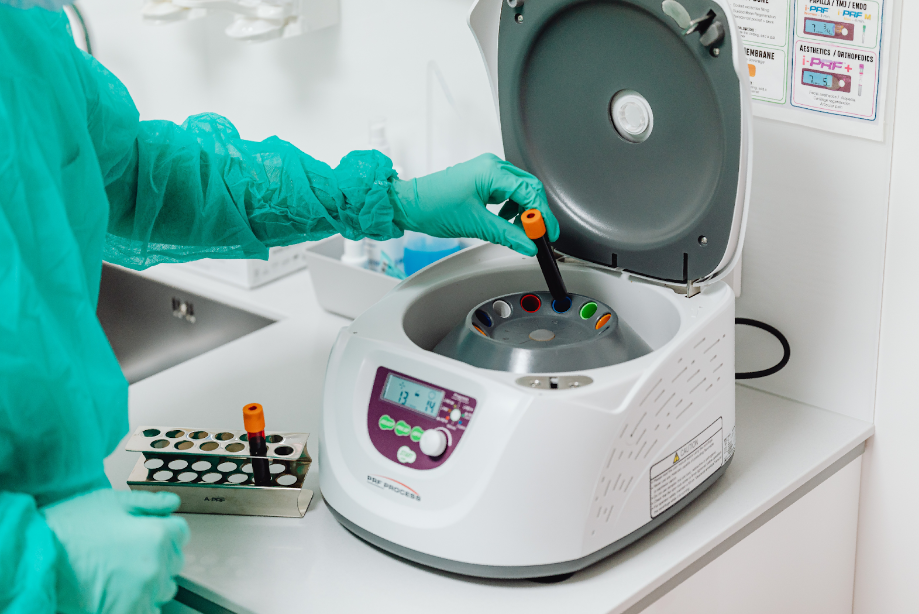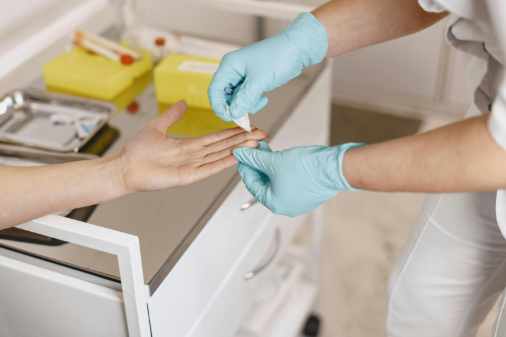What Are the Advantages of Having an In-Hospital Laboratory?
What Are the Advantages of Having an In-Hospital Laboratory?

When it comes to healthcare, laboratory services greatly help by providing accurate diagnosis, treatment planning, and monitoring of patients. Because of this, hospitals that have an in-hospital laboratory are given a significant advantage over those that do not.
Read on as we explore just what an in-hospital laboratory does, and the benefits of having one for both healthcare workers and patients.
What Are In-Hospital Laboratories?
An in-hospital laboratory refers to a dedicated facility within a hospital that is equipped to perform a wide range of diagnostic tests and analyses on patient samples. It serves as an integral part of the healthcare system, providing timely and accurate laboratory services to support patient care and treatment.
In-hospital laboratories are staffed by a team of trained laboratory professionals, including medical technologists, laboratory technicians, and pathologists. These professionals are responsible for conducting various laboratory tests, such as blood tests, urine analyses, tissue examinations, microbiological cultures, and genetic testing, among others. They follow standardized procedures and utilize advanced laboratory equipment and technologies to process patient samples and generate test results.
The presence of in-hospital laboratories tends to change the classification of the hospital itself; with these facilities present, healthcare can be provided more promptly and thoroughly, making the quality of the service provided by the hospital that much better.
The Benefits of Having an In-Hospital Laboratory
In-hospital laboratories offer many benefits to both the healthcare workers in the hospital and their patients; here are some of the most notable:
Efficient and Timely Diagnostic Services
One of the primary advantages of having an in-hospital laboratory is the ability to provide a quick turnaround time for test results. Rather than waiting for external laboratories to process samples and deliver the results, in-hospital laboratories have the infrastructure and personnel to perform tests promptly. This allows healthcare providers to access test data immediately, facilitating quicker decision-making regarding patient care and treatment plans.
With rapid results, medical professionals can diagnose conditions promptly and initiate timely treatment interventions, ultimately improving patient outcomes. This is extremely important when dealing with patients in emergency care especially, as the sooner a test is done the sooner relief can be provided.
Enhanced Patient Care and Safety
In-hospital laboratories contribute to enhanced patient care and safety in several ways. Firstly, the reduction in turnaround time for critical tests is critical in emergencies. Timely diagnosis of conditions such as myocardial infarction or sepsis can significantly impact patient survival rates. With an in-hospital laboratory, medical teams can prioritize these urgent cases and expedite the testing process, leading to faster diagnosis and immediate intervention.
Having an in-hospital laboratory also improves coordination between healthcare professionals. Laboratory staff can
directly communicate with doctors, nurses, and specialists to discuss test results, clarify any uncertainties, and collaborate on treatment plans. This seamless coordination ensures that patient care is well-coordinated and eliminates potential delays, errors, or miscommunications that could happen when relying on external laboratories.
Streamlined Workflow and Communication
Integration is vital to efficient healthcare delivery, and in-hospital laboratories excel in this aspect. These laboratories seamlessly integrate with hospital systems and electronic health records, enabling the smooth and secure transfer of test data. This integration eliminates the need for manual data entry and reduces the risk of transcription errors.
Additionally, in-house laboratories allow for direct and real-time communication between laboratory personnel and healthcare providers. Doctors and nurses can quickly reach out to the laboratory staff for inquiries, updates, or any additional tests required, facilitating a more efficient and streamlined workflow.
Cost and Time Savings
In-hospital laboratories offer significant cost and time savings for healthcare facilities. External laboratory costs, such as sample transportation and processing fees, can be eliminated by having an in-house laboratory. Instead of relying on external providers, hospitals can utilize their resources to perform tests, leading to cost reduction in the long run.
Additionally, the time saved by having an in-hospital laboratory directly impacts patient care. Without relying on external laboratories, there is no need for transportation time and logistics, resulting in quicker access to test results and shorter waiting times for patients.
In-house laboratories also allow for the efficient utilization of hospital resources. By optimizing equipment and personnel within the hospital, laboratories can handle a higher volume of tests, reducing the need for outsourcing and improving overall operational efficiency.
Flexibility and Customization
The flexibility offered by in-hospital laboratories is invaluable in the context of patient care. These laboratories can prioritize urgent cases, ensuring that critical tests are given immediate attention. By having control over the testing process, healthcare providers can promptly address life-threatening conditions, leading to better patient outcomes.
In addition, in-house laboratories can customize test panels based on specific patient needs. Depending on the medical history, symptoms, or suspected conditions, healthcare providers can request tailored tests to gather comprehensive and accurate diagnostic information. This customization contributes to more precise and targeted treatment plans, which help make patient care stronger.
Adaptability to Changing Healthcare Requirements
Like any field that uses technology, the healthcare field is constantly evolving. Add to that changes in disease patterns, and adaptability is integral. Luckily, in-hospital laboratories are well-equipped to adapt to these changing requirements. They can update their testing methodologies and incorporate new diagnostic techniques as they emerge, ensuring that patients receive the most up-to-date and accurate results. This ability to be adaptable and agile helps in-house laboratories stay at the forefront of medical innovation.
Research and Innovation
Having an in-hospital laboratory opens up opportunities for medical research within the hospital setting. Laboratory personnel can collaborate with healthcare providers to collect and analyze data, contributing to the development of new diagnostic techniques and treatment protocols.
The close proximity of the laboratory to medical professionals fosters a collaborative environment that also encourages research initiatives. These research efforts can lead to breakthroughs in medical science, benefiting not only the hospital but the broader healthcare community as well.
Patient Convenience and Satisfaction
The presence of an in-hospital laboratory significantly enhances patient convenience and satisfaction. Patients no longer need to travel to external laboratories for tests, reducing the trouble associated with transportation and waiting times. In-house laboratories provide faster test results, allowing patients to receive diagnoses and appropriate treatment sooner. This not only improves patient outcomes but also reduces the length of hospital stays, minimizing patient discomfort and healthcare costs.
The overall patient experience is enhanced when laboratory services are readily available within the hospital. Patients feel more attended to and reassured knowing that their tests can be performed and results obtained quickly. The convenience and efficiency provided by in-hospital laboratories contribute to a positive patient experience, leading to higher satisfaction levels.
Improvement for Both Healthcare Workers and Patients
There is—without a doubt—a difference in the quality and overall care the hospital itself can provide when an in-hospital laboratory is present. Whether you’re a healthcare professional working in the hospital itself or a patient receiving treatment you can benefit from an in-hospital laboratory being present, which makes it worth having.
At
Bayou Bend Health System, our dedicated healthcare team works in tandem with our
in-hospital laboratory, whether it be in the emergency room, surgery, obstetrics, intensive care unit, medical/surgical floor, Transitional Care Bed program, and daily outpatient services.
Contact us today to learn more about our laboratory and how the inpatient and outpatient services we offer can help you.



